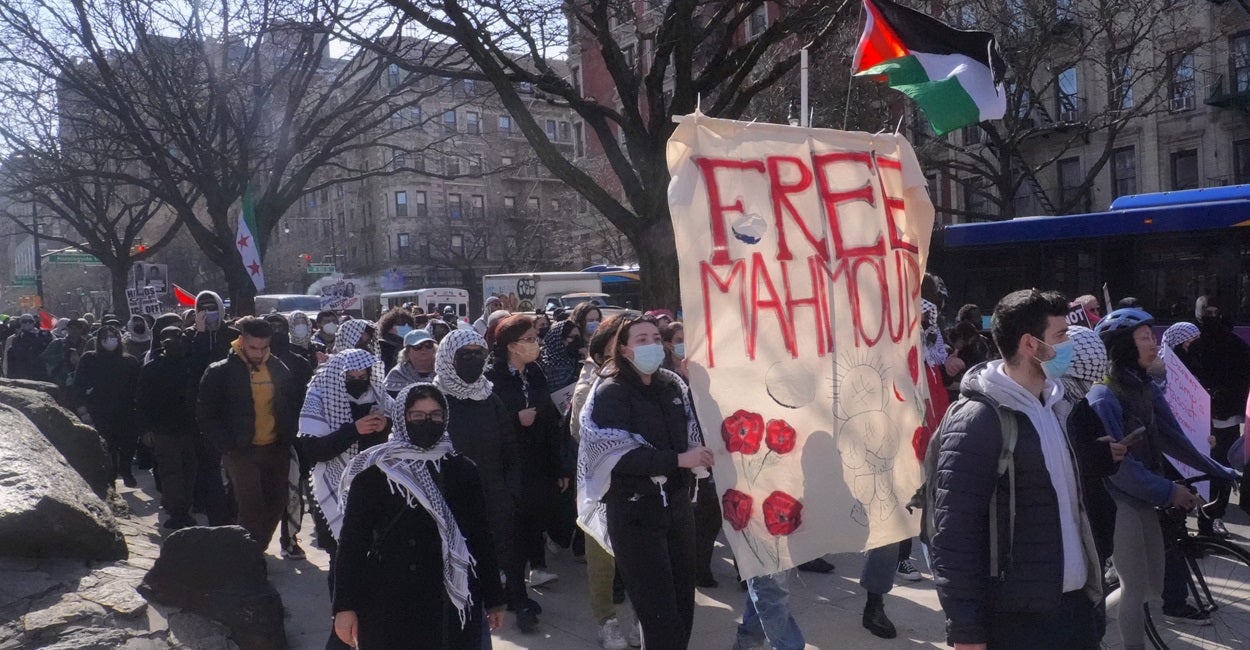Mahmoud Khalil and the Red Green Assault on American Sovereignty

```html
The Mahmoud Khalil Saga: A Microcosm of the West's Identity Crisis
Misplaced Priorities in the Media
Amidst a turbulent global landscape—stock market fluctuations, Elon Musk's governmental shakeups, Iran's nuclear ambitions, and the Russia-Ukraine conflict—the media spotlight has curiously landed on Mahmoud Khalil, a former Columbia University graduate student and non-citizen.
This focus seems oddly misplaced. Most Americans are understandably concerned about their financial well-being, international stability, and peace in conflict zones. The deportation of a single individual, even one involved in controversial campus activism, hardly registers on the same scale.
This disproportionate coverage further erodes public trust in the media, a trust already fragile, as evidenced by Gallup's findings on declining confidence.
Khalil: An Unsympathetic Figure
Mahmoud Khalil, a Syrian national and Algerian citizen, gained notoriety as the face of pro-Hamas protests at Columbia University. He served as the spokesperson for Columbia University Apartheid Divest (CUAD), a group that celebrated the October 7th attacks on Israel as a victory and openly advocated for the "total eradication of Western civilization." Khalil himself distributed propaganda pamphlets echoing Hamas's rhetoric.
The Sovereign Right to Exclude
Crucially, Khalil is not a U.S. citizen but a green card holder. His presence in the country hinges on the consent of the sovereign—the American people. As Emer de Vattel articulated in "The Law of Nations," a sovereign nation has the inherent right to control who enters and remains within its borders. This principle is reinforced by Supreme Court precedent, emphasizing that no alien possesses an inherent right to enter or remain in the United States against the national will.
Khalil's support for designated terrorist organizations and his alignment with groups hostile to Western civilization represent a clear violation of the terms of his stay. As such, his deportation is not only permissible but arguably necessary to uphold national sovereignty.
"Due process does not invest any alien with a right to enter the United States, nor confer on those admitted the right to remain against the national will." - Justice Antonin Scalia, quoting Justice Robert Jackson
A Clash of Ideologies
The Khalil saga transcends the individual. It exposes the clash between core Western values and the rising tide of anti-Western ideologies. We see the influence of woke neo-Marxism, Islamist extremism, and global neoliberalism, all converging in the defense of Khalil. This reveals a troubling trend towards blurring the lines between citizen and non-citizen, ultimately challenging the very concept of national sovereignty.
The Stakes: The Fate of the West
The calls to "Free Mahmoud Khalil" are more than just pleas for his release. They represent a broader movement seeking to dismantle the foundations of Western civilization. The Khalil affair is a stark reminder that the right to determine who resides within our borders is fundamental to our continued existence as a sovereign nation.